Food protein-induced enterocolitis syndrome (FPIES) is a rare type of food allergy affecting the gastrointestinal (GI) tract. “The symptoms often include profound vomiting, diarrhea, and dehydration, which can lead to severe lethargy, change in body temperature and blood pressure,” according to The FPIES Foundation. It can be difficult to obtain a diagnosis for FPIES because unlike typical food allergies, standard allergy tests are often ineffective, and food-related symptoms are not immediate. About 60 to 90 percent of children with FPIES outgrow their allergies in the first three years of life. However, there are cases where FPIES will continue into adulthood.
The Mighty collaborated with The FPIES Foundation to ask our communities, “What’s one secret you wish others knew about caring for someone with FPIES?” Their responses reflect the social isolation and anxiety both parents and children face daily when going to school, the playground, or even friends’ homes for dinner. Families with this rare allergy hope for increased understanding, so here is a glimpse into their lives with FPIES:
1. “Even though it’s different than a traditional allergy, it’s still very serious. Some people tend to think it’s not serious or a real allergy. When your baby ends up in the ER, you know it’s serious and real!” – Casidy J.
2. “It’s not that we want to be alone and stay home. It’s the only place we feel somewhat safe and in control.” –Shannon B.
3. “The child is the true hero. My son is 8 and is FPIES to cereal grains. He is his own advocate and loves reading food labels to ensure he is going to stay healthy.” – Shavon F.
4. “My son is at the age where he’s noticing he can’t do all the same things at daycare. Sure, he only eats food from home, but he is also excluded from certain crafts, birthday celebrations, and a lot of holiday parties. He has to sit all alone if there is a messy treat or activity. When someone makes an effort to have something special for him (approved by me), it means so much.” – Diane K.
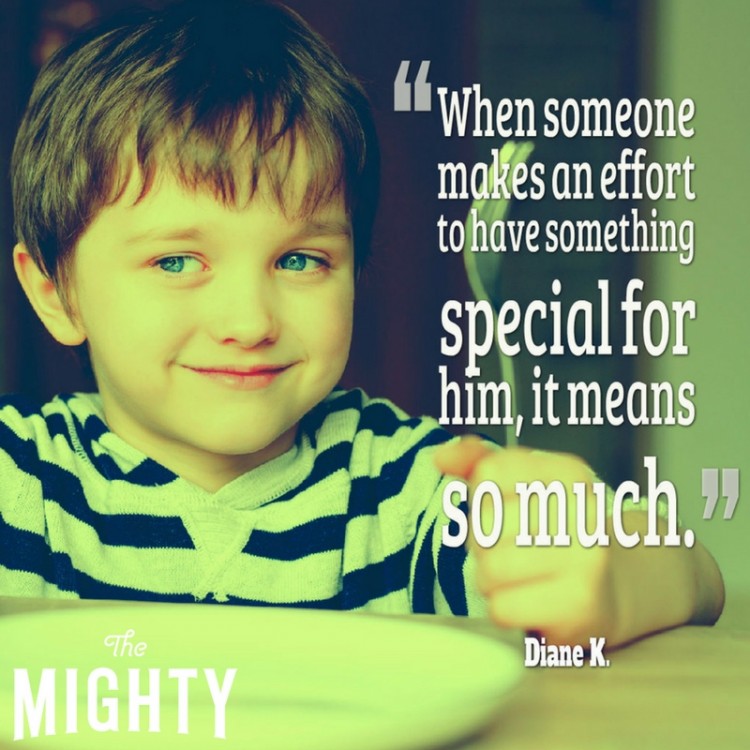
5. “You wonder if you’re ever going to be able to fully trust someone else, besides your spouse, to watch your child so you can have a 10-minute breather. FPIES is exhausting. It’s expensive. It feels never-ending.” – Jacie D.
6. “I wish people would understand that just because his allergies don’t require an EpiPen, it doesn’t mean they aren’t life-threatening or dangerous. FPIES is rare but real.” – Tina Y.
7. “Just because you may not ‘understand’ what a family dealing with FPIES is going through, they still need your love and support. It’s a long and oftentimes lonely road. You don’t have to get it, you just have to show kindness and love.” – Katie K.
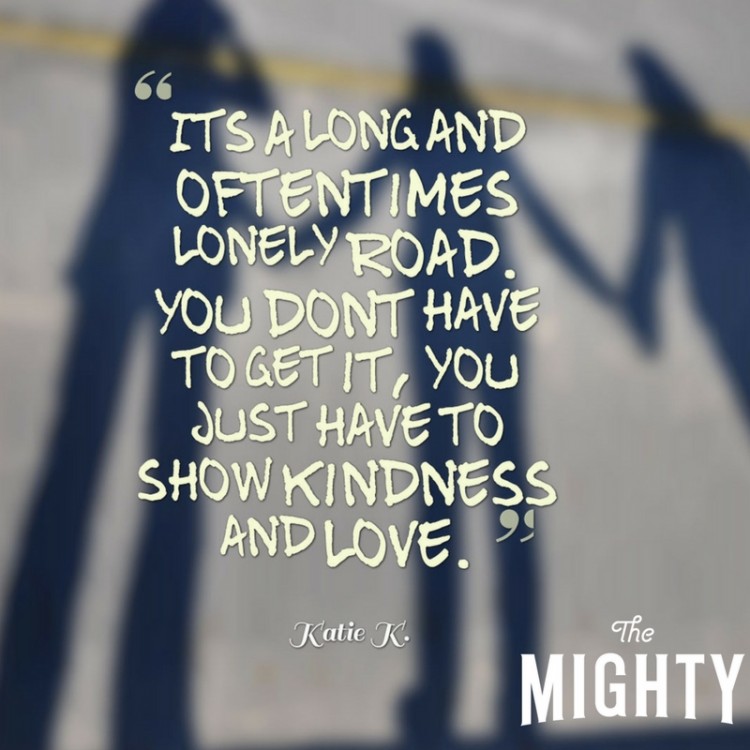
8. “It’s heartbreaking to see your kid get upset because you have to leave the playground as soon as you get there because other parents let their kids eat food while running around the equipment. As an FPIES parent, you have to consider all the unknown food as a potential trigger.” – Amanda D.
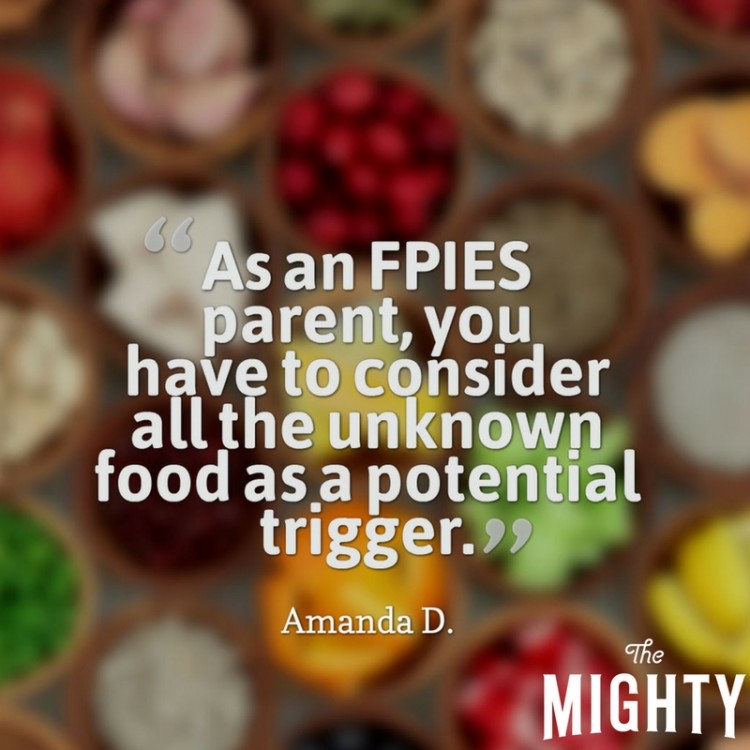
9. “Not everyone outgrows it; there is no guarantee. My 6-and-a-half-year-old and best friend’s 7-year-old still avoid FPIES triggers daily. It can be a long road!” – David T.
10. “I spend each day terrified that the tiniest of crumbs, a sip of unclean water, or a lick of a surface that has not been sanitized properly could make my baby horrendously sick and land him in the hospital yet again.” – Brittany S.
11. “I am trying to raise a child whose illness doesn’t define her, and instead what matters are all the smart, funny, silly, sassy things she does and says does. It’s difficult to have everyone else understand this and not isolate her because of it, or place negative connotations on what she can’t do or can’t eat. I try to make sure she knows she can do things her way, even through all of the things she can’t.” – Tatiana Z.
12. “As the parent, you probably know more about FPIES than most doctors and pediatricians do.” – Nicole B.
13. “It’s extremely socially isolating for both little ones and parents.” – Janine M.
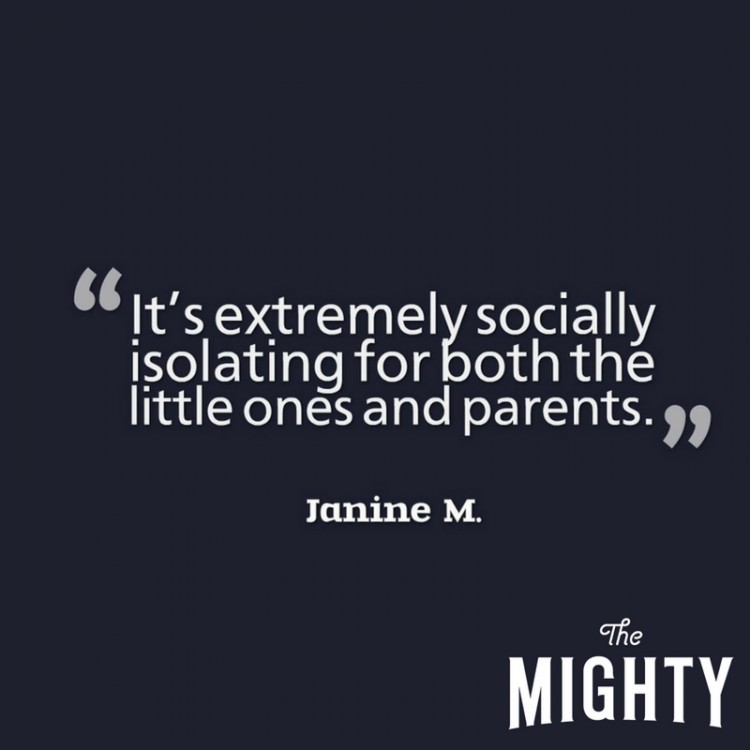
14. “Always check with a parent before offering another child food of any kind. You just never know if that seemingly harmless treat or snack could make them really sick.” – Katrina R.
15. “It is heartbreaking when your toddler asks for foods they can’t have, and not being able to accommodate their desire for new experiences.” – Mary K.
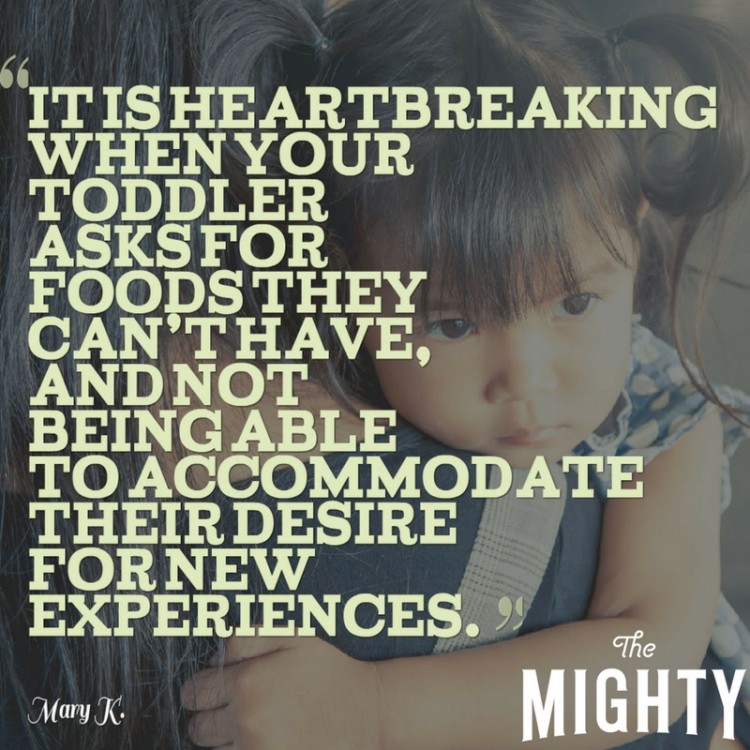
16. “My daughter is allergic to green vegetables. I worry she’s going to have a nutrient deficiency and it will affect her growth and health.” – Tiffney G.
17. “There was a point in my daughter’s life where the only thing she could eat was white potato and coconut. Everything else sent us to the hospital. Yet each time we would meet a new doctor, we would see a look of disbelief flash across their face. Just because FPIES is an invisible illness, doesn’t make it any less real.” – Laura B.
18. “We want others to know alienating it can be. We know it’s difficult to invite us to the dinner or event because that means you’ll get a thousand questions about food, and you’d rather not have to deal with it. But it doesn’t mean we’re ungrateful for the offer.” – Heather O.
19. “Most of the time the strength and bravery to get through a day comes from our daughter. Her smiles, laughs and kisses get us all through the tough stuff. Being the parent of a child with FPIES doesn’t make you a superhero, it gives you the opportunity to raise one.” – Alliyson F.
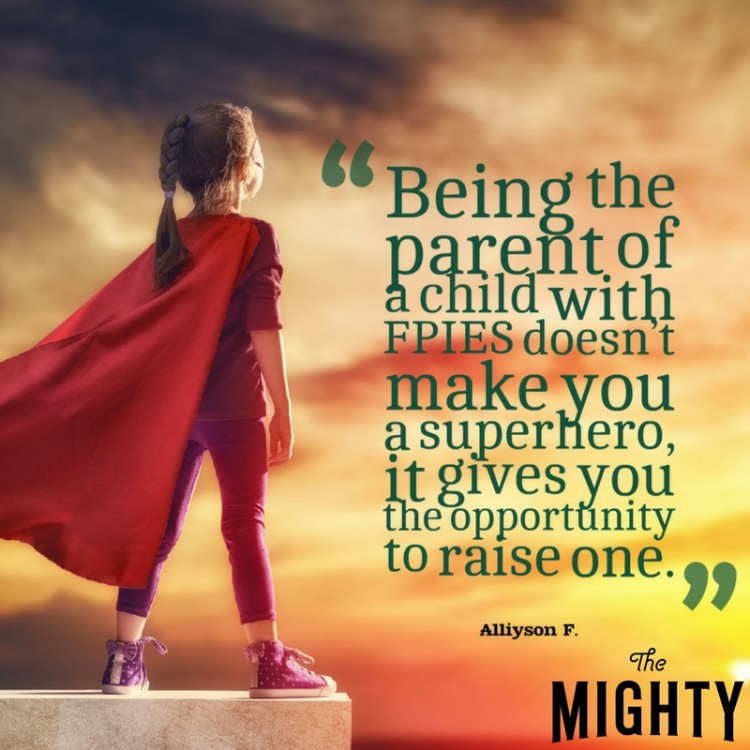
Do you have a child with FPIES? What’s one secret you’d like others to know? Leave your comment below.
We want to hear your story. Become a Mighty contributor here.

